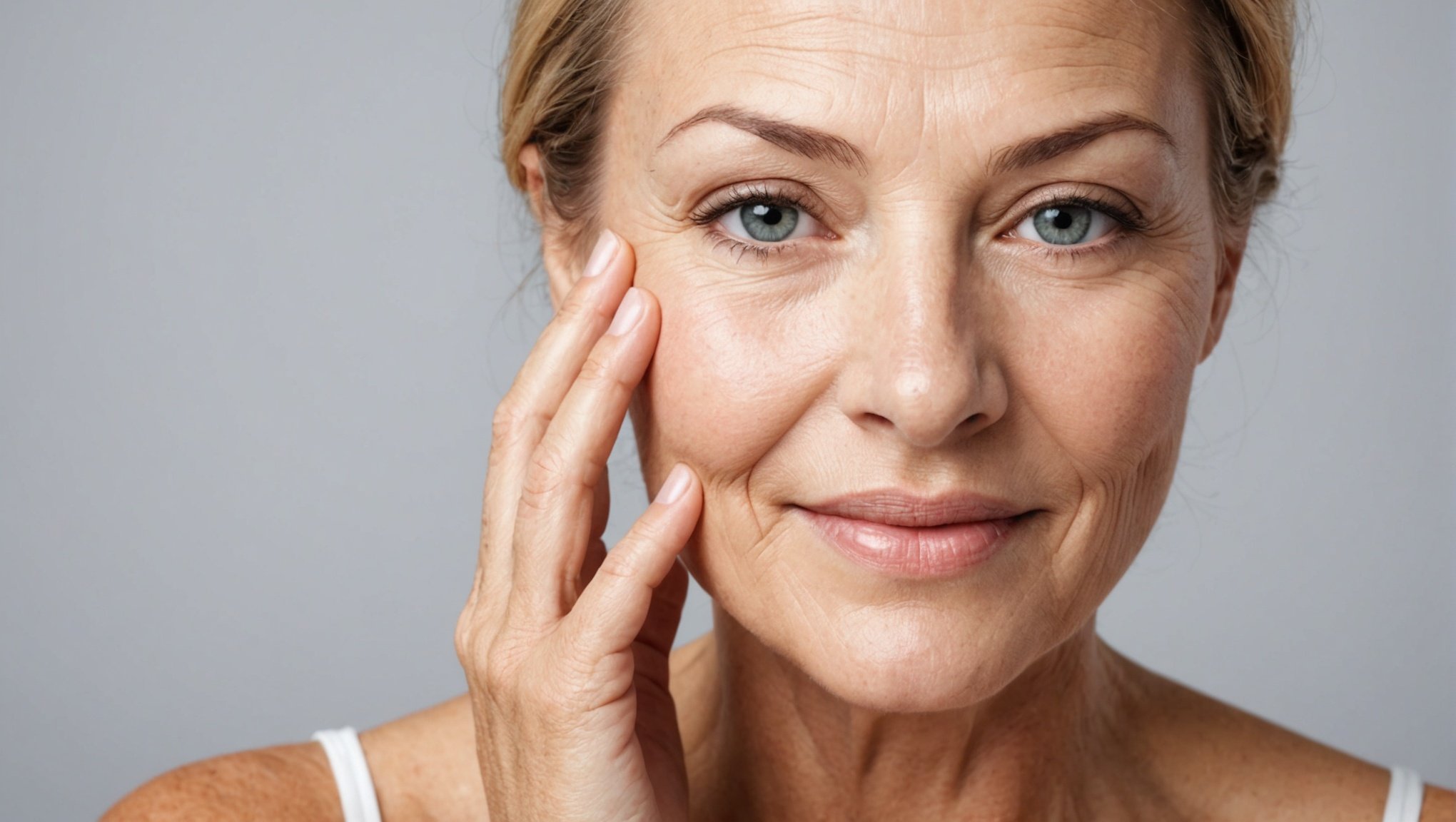As we age, our skin undergoes several changes. It starts to lose its elasticity, become thinner, and show signs of wrinkles and age spots. These changes are a normal part of the aging process, but they can be exacerbated by various factors such as sun exposure, diet, and lifestyle choices. By understanding the role certain nutrients play in skin health, you can adopt a diet and supplement regimen that helps to fight the damaging effects of aging.
The Role of Vitamin A in Skin Health
Vitamin A is a fat-soluble vitamin that is crucial for maintaining healthy skin. As a powerful antioxidant, it helps to combat the damaging effects of free radicals, which are unstable molecules that can damage cells and contribute to aging and diseases.
Also to read : Exploring the Impact of Exercise on Teen Mental Well-Being: Unveiling the Connection Between Physical Activity and Emotional Health
The human body cannot produce vitamin A on its own, so it must be obtained through diet. Foods rich in vitamin A include sweet potatoes, carrots, and dark leafy greens.
Topical applications of vitamin A, also known as retinoids, have been shown to effectively reduce wrinkles and other signs of aging. These products work by increasing the production of collagen, a protein that provides structure and elasticity to the skin.
In the same genre : Can Cognitive Behavioral Therapy Help with Insomnia?
However, it’s important to note that excessive intake of vitamin A, either through diet or supplements, can be toxic. Always consult with a healthcare professional before starting any new supplement regimen.
Vitamin C and Skin Aging
Vitamin C is another vital nutrient for skin health. Like vitamin A, it serves as an antioxidant, helping to neutralize free radicals that can accelerate skin aging.
In addition, vitamin C plays a key role in the synthesis of collagen. By ensuring a healthy supply of this essential protein, vitamin C helps to keep your skin firm and wrinkle-free.
Foods rich in vitamin C include citrus fruits, strawberries, bell peppers, and broccoli. Although the body cannot produce or store vitamin C, it is water-soluble, which means it’s generally safe to consume in large amounts. However, to avoid stomach upset, it is recommended to stick with the recommended daily allowance.
Zinc for Skin Health
Zinc is a trace mineral that plays a vital role in maintaining skin health. It helps with wound healing, fights off bacteria and inflammation, and protects against UV damage.
Foods that are high in zinc include oysters, red meat, poultry, beans, and nuts. While zinc deficiency is uncommon, it can lead to skin problems such as acne, dermatitis, and delayed wound healing.
Supplementing with zinc can be helpful, but it’s crucial to get the dosage right. Too much zinc can interfere with the absorption of other minerals like copper and iron, leading to anemia and other health problems. Always talk to a healthcare provider before starting a new supplement regimen.
The Benefits of Protein for Skin Health
Protein is crucial for skin health. It provides the building blocks for collagen and elastin, two proteins that give your skin its structure and elasticity.
Lean meats, poultry, fish, beans, and dairy products are all excellent sources of protein. For vegetarians and vegans, soy products, lentils, and quinoa are good alternatives.
While it’s important to get enough protein to support skin health, it’s equally important not to overdo it. Consuming more protein than your body needs can lead to weight gain and other health concerns.
How Omega-3 Fatty Acids Support Skin Health
Omega-3 fatty acids are types of fat that are essential for good health. They help keep the skin hydrated, fight inflammation, and protect against sun damage.
Foods that are high in omega-3 fatty acids include fatty fish like salmon and mackerel, walnuts, flaxseeds, and chia seeds.
While it’s possible to get enough omega-3s through diet alone, some people may benefit from taking a supplement. This is especially true for people who don’t eat fish or those with certain health conditions. As with any supplement, it’s important to talk with a healthcare provider before starting a new regimen.
In conclusion, maintaining healthy skin as you age is not just about what you put on your skin, but also about what you put in your body. A diet rich in vitamins, minerals, and other essential nutrients can help to keep your skin looking youthful and radiant.
The Power of Green Tea in Protecting the Skin
Green tea, revered for its multitude of health benefits, plays a significant role in maintaining skin health. Rich in polyphenols, it is a potent antioxidant that fights free radicals, which are known to cause oxidative damage to the skin. According to studies referenced on Google Scholar and PubMed Crossref, the compounds in green tea have anti-inflammatory and anticancer properties, which can help protect the skin from sun damage and skin cancer.
Beyond its role as an antioxidant, green tea also plays a part in wound healing. The polyphenols it contains help to speed up skin regeneration, reducing the time it takes for wounds to heal. These findings, according to an article on PubMed, have led to the use of green tea in a variety of skincare products, from creams to serums.
While you can benefit from green tea by drinking it, applying it topically through skincare products can provide direct benefits to your skin. However, just like other nutrients, moderation is key. Overconsumption of green tea may lead to caffeine-related side effects. Therefore, it’s critical to balance your intake and consult with a healthcare provider if you’re considering green tea supplements.
The Influence of Ascorbic Acid on Aging Skin
Ascorbic acid, also known as vitamin C, has a profound impact on aging skin. As an antioxidant, it combats oxidative stress caused by free radicals, according to several studies available on Crossref Google and DOI PubMed. This property helps to prevent premature skin aging and reduce visible signs of aging like wrinkles and age spots.
Moreover, ascorbic acid plays a pivotal role in the production of collagen, a protein that imparts elasticity and structure to the skin. By promoting collagen synthesis, ascorbic acid helps to maintain firm, youthful-looking skin.
Foods rich in ascorbic acid include oranges, kiwi, bell peppers, and strawberries. As the human body doesn’t produce or store vitamin C, it’s crucial to include these foods in your diet. For those considering ascorbic acid supplements, it’s advisable to consult with a healthcare provider to avoid potential side effects from excessive intake.
Conclusion
As we age, healthy skin becomes more than just an aesthetic pursuit; it’s an indicator of overall health. A diet rich in essential nutrients like vitamin A, vitamin C, zinc, protein, omega-3 fatty acids, and the addition of beneficial compounds found in green tea and ascorbic acid, can help combat the signs of skin aging. However, maintaining balance is key, and it’s crucial not to overindulge in any one nutrient as excessive intake can lead to adverse effects. Before starting any new dietary or supplement regimen, always consult with a healthcare provider. By adopting a holistic approach to skin health, including careful dietary choices and good lifestyle habits, you can help to keep your skin looking youthful and radiant for longer.











